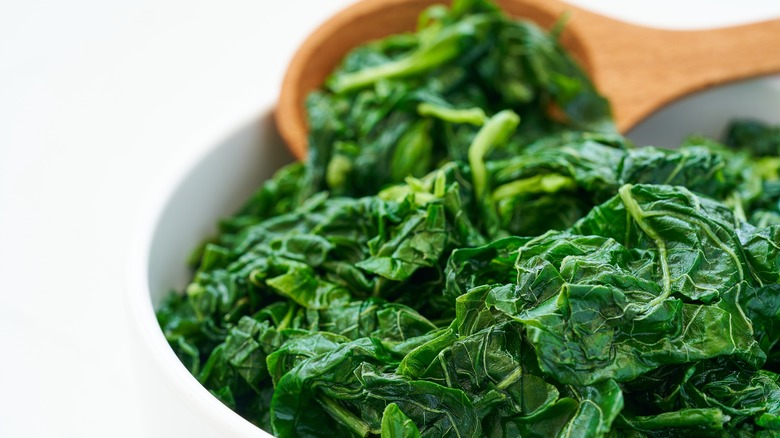Tips For Lowering Your Risk Of Glaucoma
Glaucoma, a disease that damages your optic nerve, can happen so suddenly that you might not even know that you have it until it's too late. The loss of vision can be very subtle, often starting with your peripheral vision, and may go unnoticed at first. However, once your vision is lost, you cannot get it back.
Glaucoma is caused by a buildup of fluid, known as aqueous humor, in the eye, causing eye pressure. That buildup can be caused either by a blockage or by the fact that the eye is somehow producing too much fluid, per WebMD. There is no one specific cause for glaucoma, although family history can be a factor, as well as age, with people over 40 being more susceptible. In addition, some medications such as prednisone or seizure medications could also play a role in glaucoma formation. Because there are so many potential causes, and because it can be hard to tell when glaucoma may form, it's important to take precautions.
What you put in your stomach can help your eyes
If you're over the age of 35, it's a good idea to start getting regular eye exams, especially if you are in a high-risk category for developing glaucoma (via McDonald Eye Care Associates). Regular exercise can also relieve eye pressure, which is a primary cause of glaucoma. Even moderate exercise, such as walking or jogging, can have a number of health benefits, including a reduction in eye pressure.
One of the key weapons in the fight against potential glaucoma onset is your diet, McDonald Eye Care notes. For example, fruits and vegetables are rich in vitamins and antioxidants, which can go a long way toward keeping eye pressure under control. According to a 2012 study published in the American Journal of Ophthalmology, those who consumed three or more servings of fruit per day were nearly 80% less likely to develop glaucoma.
In addition, leafy green vegetables such as kale and spinach can also be helpful, as reported by a 2016 study published in JAMA Ophthalmology. According to that study, over the course of 25 years, people who had leafy greens as a staple of their diet were 20% to 30% less likely to develop glaucoma than those who did not. Leafy greens are rich in nitrate, which the body converts to nitric oxide, assisting in blood flow.
Protect your eyes at all times
The Glaucoma Research Foundation also reports that eye injury can be a potential cause of glaucoma. If any kind of trauma occurs to the eye, either from an accident or a sports-related injury, it can make it harder for fluid to drain from the eyes. In fact, 75% of traumatic eye injuries can impact the eye's ability to drain. Because of this, it's important to protect your eyes with safety goggles and face shields when doing any kind of work or playing sports where the eyes could be damaged.
While glaucoma can't be prevented, there are many steps you can take to help slow its onset or mitigate its effects. It's important to communicate with your doctor, get regular checkups, and also to learn your family history to determine whether or not any of your relatives have ever had glaucoma. Taking care of your eyes and your body now can help lay the groundwork for healthy eyesight in the future.



